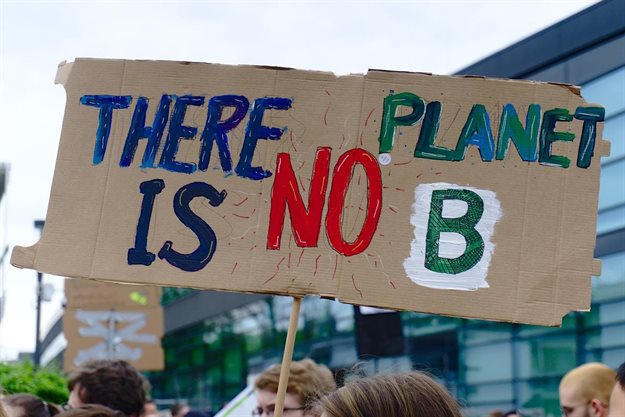
Top stories






LifestyleWhen to stop Googling and call the vet: Expert advice on pet allergies from dotsure.co.za
dotsure.co.za 2 days
More news




















Non-compliance with environmental law is progressively regarded as a top risk for major corporates, with the authority-based compliance and enforcement intervention potentially resulting in complete, or partial business interruption, significant fines, imprisonment, personal liability and even, civil liability and damages. It has long been thought that these risks could be mitigated via appropriate authority engagements and committed action plans.
More and more civil society is taking an active role in monitoring and, in some instances, seeking to compel and enforce compliance. It does not discriminate and does so in relation to the activities of both corporates and authorities.
The past year has seen some interesting and also novel civil society-based steps to protect the environment not least of which was the Greenpeace Africa fabricated hospital scene set up at Eskom’s headquarters at the end of August 2019. The scene was designed to draw attention to the air quality related deaths and diseases caused by Eskom’s coal-fired power stations.
Shareholder activism is also now being used in South Africa as a tool by environmentalist pressure groups. In May 2019, community members and environmental justice group members protested outside the ArcelorMittal South Africa Annual General Meeting.
Attorneys from the Centre for Environmental Rights (CER) and representatives of the Vaal Environmental Justice Alliance, who had registered as shareholders, attended the AGM and raised questions on AMSA’s environmental performance. Then, whether it was coincidental or not, a summons instituting criminal proceedings in relation to non-compliances with AMSA’s atmospheric emission licence, was delivered to AMSA on 30 May 2019 necessitating a SENS notification to shareholders on the same day.
Around the world, shareholder resolutions have become a powerful tool for raising awareness about climate change risk, and for driving business and financial sectors to take action to understand, mitigate and avoid that risk. Just Share recently supported a request by minority shareholders (RAITH Foundation and Theo Botha), to a large petrochemical company who, based on legal advice, refused to allow the resolution. The RAITH Foundation and Theo Botha then requested Standard Bank to report to shareholders on, amongst other things, its assessment of greenhouse gas emissions resulting from it is financing portfolio and its exposure to climate change risk in its lending, investing and financing activities and requested that the bank adopt and publicly disclose a policy on lending to coal-fired power projects and coal mining operations.
On 30 May 2019, 55% of shareholders at the AGM voted in favour of the bank being compelled to “adopt and publicly disclose a policy on lending to coal-fired power projects and coal mining operations”. A second part of the requested resolution, which would have required that the bank report to shareholders on its assessment of emissions resulting from its financing portfolio, only received a 38% vote in its favour.
Also, in May 2019, the CER confirmed that it had successfully applied for information relating to greenhouse gas pollution prevention plans submitted to the Department of Environmental Affairs by multiple corporate entities. Access to information requests like these are often relied upon by civil society in the pursuit of meeting their objectives. This is not a new trend but it has been given recognition and support by South Africa’s highest court. In Company Secretary of Arcelormittal v Vaal Environmental Justice Alliance, in response to an argument that the applicant and information requester, being the Vaal Environmental Justice Alliance (“VEJA”) was “usurp(ing) the role of the relevant regulating authorities” in relation to compliance, the court stated that “government departments (do) not have adequate resources to monitor compliance at all production facilities in the country and that the public, including VEJA, can play an active role in that regard”.
Also demonstrating civil society’s role are a number of court cases in the past year which have demonstrated judicial support for environmentalists seeking to protect the environment. In November 2018, Judge Davies in the Pretoria High Court set aside a joint decision of the Ministers of Environmental Affairs and Mineral Resources (as they then were) which permitted a mining company (Atha Africa Ventures 16 (Pty) Limited) to mine in a protected environment. The court’s decision was based on multiple factors including the fact that the process lacked transparency and an adequate public participation process. Significantly, in apparently expressing its dissatisfaction, the court ordered the ministers and the MEC to pay a punitive costs order.

Earlier this year, South Africa also saw the first successful private prosecution for environmental offences in the matter of Uzani Environmental Advocacy CC v BP Southern Africa (Pty) Ltd. Private prosecution is specifically provided for in the National Environmental Management Act. The judgment may well encourage further private prosecutions for environmental crime where the state has elected not to prosecute.
Alternative forums are also being used including, for example, the South African Human Rights Commission which has investigated complaints regarding the socio-economic impacts of mining on communities and is investigating municipal water treatment plants and their (and neighbouring industry’s) contribution to water pollution. The use of alternative forums is not unique to South Africa. In mid-May 2019, it was reported that a group of indigenous people from the Torres Strait Islands (situated off the north-east coast of Australia) had lodged a complaint against the Australian Government to the United Nations on the basis that, by falling short of its Paris climate accord pledges and failing to implement adequate policies to cut emissions, it had breached their human rights.
To put it plainly, environmental considerations are no longer the “frilly” issues. Companies and management ought to appreciate the short- and long-term business imperative that sound environmental management practices offer. This said, however, the courts will not always bend over backwards to accommodate environmentalists. This was evident in the recent case of Global Environmental Trust and others v Tendele Coal Mining (Pty) Ltd and others in which, despite the protection afforded to environmentalists in relation to cost orders, the court dismissed Global Environmental Trust’s application with costs. Environmentalists ought equally to pay heed to the need to act reasonably and rationally.
Though the pressure seems great, it is hoped that environmental protection in South Africa, with the welcome support of our courts, as is the case in so many other areas of law at the moment, and responsible corporates and environmentalists will find the necessary balance to achieve truly sustainable development in the interest of present and future generations.